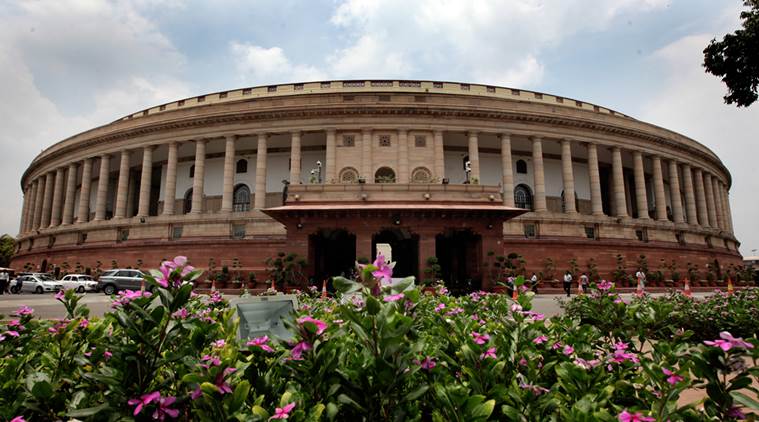by D.N. Jha
 There was a ruckus in the Rajya Sabha over the alleged association of Hindu deities with alcohol PHOTO/Indian Express/Ravi Kanojia
There was a ruckus in the Rajya Sabha over the alleged association of Hindu deities with alcohol PHOTO/Indian Express/Ravi Kanojia
It may be pointed out that there were a large variety of intoxicating drinks, nearly 50 types of them, available in ancient India. The use of alcohol by men was quite common, despite occasional dharmashatric objections in the case of Brahmins; and instances of drinking among women were not rare.
I was amused to read in the media that there was a ruckus in the Rajya Sabha over the alleged association of Hindu deities with alcohol. Since the objectionable remarks were expunged, I am not able to refer specifically to the god or to the MP who mentioned him. Our politicians may not be well versed in all our ancient lore specially because and knowledge of the past is not their strong point; but it is not too much to expect that they should have the basic idea of the qualities and activities of the divinities whom they worship and defend. For constraints of space it is not possible to discuss here the traits of all those gods and goddesses who used alcohol, but I would like to draw the attention of readers to only few of them who binged on intoxicating drinks.
In the Vedic texts soma was the name of a god as well as of a plant from which a heady drink of that name was derived and was offered to gods in most of the sacrifices; according to one opinion it was different from another intoxicating drink, sura, which was meant for the common people. Soma was a favourite beverage of the Vedic deities and was offered in most of the sacrifices performed to please gods like Indra, Agni, Varun, Maruts and so on, whose names occur frequently in the Rig Veda. Of them Indra, who is known by 45 epithets and to whom the largest number of Rig Vedic hymns — 250 out of more than a thousand — are dedicated, was the most important. A god of war and wielder of thunderbolt, rowdy and adulterous, potbellied from excessive drinking, he is described in Vedic passages as a great boozer and dipsomaniac; he is said to have drunk three lakes of soma before slaying the dragon Vritra. Like Indra, many other Vedic gods were soma drinkers but they do not seem to have been tipplers. Agni, for example, may have drunk moderately though a detailed analysis will show that teetotalism was unknown to the Vedic gods and drinking was an essential feature of sacrifices performed in their honour. In a ritual performed at the beginning of the Vajapeya sacrifice, a collective drinking took place in which a sacrificer offered five cups to Indra as well as 17 cups of soma and 17 cups of sura to 34 gods.
Like the Vedic texts, the epics provide evidence of the use of intoxicating drinks by those who enjoy godly status in Hindu religion. In the Mahabharata, for example, Sanjay describes Krishna (an incarnation of the god Vishnu) and Arjuna in the company of Draupadi and Satyabhama (wife of Krishna and an incarnation of Bhudevi), exhilarated by Bassia wine. In the Harivamsa, which is an appendix to the Mahabharata, Balarama, an avatara of Vishnu, is described as “inflamed by plentiful libations of kadamba liquor” dancing with his wife. And in the Ramayana, Rama, an avatara of Vishnu, is described as embracing Sita and making her drink pure maireya wine. Sita, incidentally, seems to have a great fascination for wine: While crossing the river Ganga, she promises to offer her rice cooked with meat (shall we call it biryani!) and thousands of jars of wine, and while being ferried across the Yamuna, she says that she will worship the river with a thousand cows and 100 jars of wine when her husband accomplishes his vow. The use of alcohol by the gods is not confined to the Vedic and epic traditions. In the Puranic mythology, Varuni, who emerged from the samudramanthana (churning of the ocean), is the Indian goddess of wine; Varuni was also the name of a variety of strong liquor.
The Tantric religion is characterised by the use of five makaras — madya (wine), mamsa (meat), matsya (fish), mudra (gesture) and maithuna (sexual intercourse) — and these were offered to gods, though only the followers of Vamachara were entitled to the use of panchamakara (five Ms).
Indian Express for more
